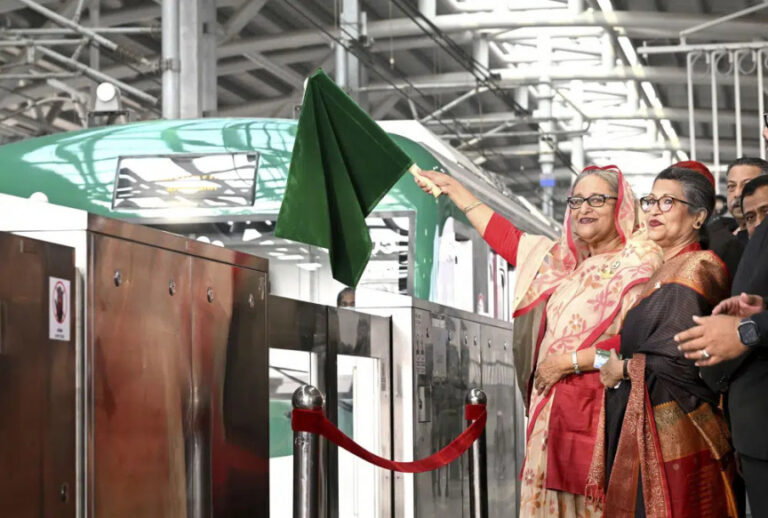Bangladesh launched its first metro rail service, funded mostly by Japan, in the densely populated capital on Wednesday, 28 December.
The country’s Prime Minister Sheikh Hasina inaugurated the service accompanied by newly appointed Japanese Ambassador Kiminori Iwama and Ichiguchi Tomohide, the Chief Representative of Japan International Cooperation Agency (JICA).
“We have added another feather of pride to the crown of Bangladesh’s people today. Another feather added to the crown of the development of Bangladesh,” she said during the inauguration.
Hasina had commemorated six Japanese rail engineers working on the project who were killed during an attack on a Dhaka cafe by Islamic extremists in 2016. A total of 29 people died, including 20 hostages.
Earlier in June, Hasina inaugurated a 6.51 kilometer bridge spanning the Padma River, which was built by China at the cost of approximately USD3.6 billion – paid with domestic funds. It was one of more than 100 bridges Hasina has opened in recent months.
Meanwhile, a limited version of the metro service launched on Wednesday, and is expected to grow to over 100 stations and six lines crisscrossing the city by 2030.
A section of the first line connects a prime neighborhood on Dhaka’s periphery with the city center. It was built for USD2.8 billion and largely funded by JICA. The line is expected to carry 60,000 people each hour when it becomes fully operational.
Iwama, the Japanese ambassador highlighted the long-standing relationship between Bangladesh and Japan. He also underlined his commitment to deepening the ties as more Japanese investment and finances are coming to Bangladesh.
JICA chief Tomohide said the metro rail project was a beacon of cooperation between the two countries, that will “change the lives of the common people in Dhaka”.


